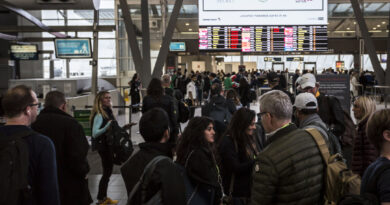Inquiry into Foreign Interference Resumes, Shifts Focus to Canada’s Deterrence Capability
While previous hearings focused on past interference, the latest round will shift to examining how Canada can deter current and future threats.
“Essentially, we will be examining the current capacity of government, departments, agencies, institutional structures, and governance processes to combat foreign interference, and how their ability to do so has evolved over time,” Commissioner Marie-Josée Hogue said during her opening remarks.
Several stakeholders and their representatives spoke at the hearing, including Conservative MP Michael Chong’s counsel, Gib van Ert. He highlighted Chong’s concern about being targeted by China and the delays he experienced in learning about it from the federal government.
Neil Chantler, representing the Chinese Canadian Concern Group on the Chinese Communist Party’s Human Rights Violations, said the group is focused on monitoring Beijing’s reported foreign interference in Canada.
“There is perhaps no greater issue for the diaspora than foreign interference by the Communist Party of China,” Chantler said.
“The Concern Group’s members are firmly opposed to China’s efforts to suppress freedom of speech in Canada, manipulate our media, co-opt Chinese Canadian community groups, spread disinformation, harass, intimidate, and threaten members of the diaspora, and otherwise interfere with our democracy.”
Gregory Tzemenakis, who represents the Canadian government, told the commission the country has yet to face major foreign interference, but said the government remains vigilant against this “very real and pernicious threat.”
“While Canada has seen foreign interference activities and efforts, it has not faced the large-scale coordinated foreign interference efforts that have been observed in some other countries recently,” he told the commission.
Intelligence Reports
In addition to investigating election interference, the commission is also reviewing intelligence reports from the National Security and Intelligence Committee of Parliamentarians (NSICOP). The report cited “troubling intelligence” that some parliamentarians have knowingly assisted foreign actors in interfering with Canadian politics.
Hogue indicated she will not publicize the names of the parliamentarians involved, stating that it’s essential to uphold the rule of law, which protects individuals’ rights to defend themselves.
The report said that while interference impacted several ridings during the elections, it did not ultimately change the overall outcome.
The current round of hearings will continue until Oct. 16, with testimony expected from Prime Minister Justin Trudeau, various cabinet ministers, and government department officials.





